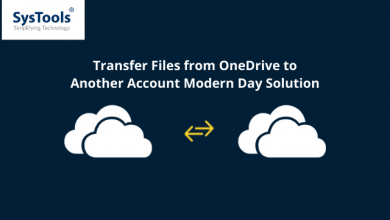The 6 Essential SaaS Trends You Should Watch Out For In 2022

We are at the pinnacle of technological advancement, with technologies such as cloud computing replacing cumbersome physical hard drives as a result. Furthermore, Saas (software as a service) is playing a crucial part in this transition, from corporate automation to industrial development.
In both the IT and commercial worlds, SaaS has become an essential component of development.
The software-as-a-service (SaaS) model has grown in popularity in recent years as it continues to provide cutting-edge solutions across a wide range of businesses. Customer expectations are rising as the competition among SaaS solutions intensifies.
A software distribution model in which an external provider hosts programmes and makes them available to consumers through the Internet is referred to as SaaS. One of the most important categories of cloud computing is SaaS-based solution, which includes infrastructure-as-a-service (IaaS) and platform-as-a-service (PaaS) (PaaS).
According to Gartner’s research, the SaaS sector will grow by 17 percent globally in 2022, with cloud application services expanding from $101,480 million in 2020 to $138,261 million in 2022.
Everything points to one conclusion: 2022 will be the year of SaaS trends. With this comes new changes and developments, therefore we’ve compiled a list of the most important SaaS Business Model Trends to watch in 2022:
Artificial Intelligence
The emergence of AI in the computer industry is a fascinating narrative in and of itself. It has revolutionised how businesses are managed. It has elevated critical company components such as procedures, operations, automation, productivity, and human capability optimization to a new level.
Given its evident influence on organisations, SaaS providers have adopted it and will continue to do so in the future.
For sectors in B2B, B2C, and DTC marketplaces, AI capabilities like hyper-personalization have been a game-changer in gaining greater client happiness. Quality support services like chatbots, easy code review and maintenance, security surveys, and user enlistment are just a few of the major use cases for AI.
Machine Learning
Machine Learning (ML) and AI are frequently used interchangeably, which is slightly erroneous. It is a subfield of artificial intelligence that focuses on learning skills and data processing.
Some of the most important applications of machine learning in SaaS include (but are not limited to):
- Allowing platforms to learn about consumers’ tastes and behaviors, allowing companies to improve the usability and intuitiveness of their products;
- Internal communication and operations are being improved.
- Increasing consumer engagement;
- Providing enhanced data security with sophisticated pattern recognition;
Salesforce is an excellent example of a SaaS platform that makes use of machine learning. One of the world’s most powerful CRMs assists in detecting trends in client behaviour that would otherwise go unnoticed by the sales team. In addition, the software proposes salespeople’s next moves depending on the data it collects.
Data Security
In this digital world, data is the most precise thing. It is critical to protect the user and corporate data, which is increasingly store on the cloud. In the event of a data breach, this information might end up in the wrong hands.
A solid data security mechanism is essential in SaaS to limit the possibility of privacy threats and similar scenarios.
Data security is a top priority in SaaS, and developers are working harder than ever to improve security features. However, a range of data security measures, such as data encryption, strong passwords, data backups, and others, can be utilise to meet data security goals.
White labeling
White labelling allows companies to diversify their product and service offerings. Similarly, SaaS companies do the same thing: they buy an unbranded product, alter it (in certain cases) to their specifications and then white label it to sell to clients under their brand.
The market for white label software is expanding rapidly as more and more businesses rely on SaaS applications for various operations on their platforms. In general, the most white-labeled software is email marketing software, on-demand delivery app, development tools, and integration software.
As a result, in the coming year, it will be a key trend in software development.
Micro-Saas
Micro-SaaS is a technique for improving current SaaS applications. These tools, which come in the shape of extensions, plugins, and add-ons, perform important duties. Small teams may easily operate and maintain these Micro-SaaS projects. And they don’t require the same level of investment as a SaaS project.
It’s a relatively new technology in the SaaS industry that’s easy to implement. Examples include Sprout Social, Grammarly, Mailtrack, and other Micro-Saas extensions. We may see more of this year as one of the SaaS industry’s development trends.
Migration to PaaS
According to estimates, PaaS expenditure would reach 71 billion USD by the end of 2022. This opens the door to new opportunities. More companies are going to PaaS, which allows them to build custom apps as add-ons to their existing features to better serve their customers and expand into new markets.
All SaaS providers need to do is give their clients the necessary cloud computing platform as a service (PaaS) and charge them only for the resources they utilise.
Conclusion
SaaS is no longer limit to the IT business, and it is gradually gaining popularity in other industries as well. As the industry incorporates cutting-edge technologies like machine learning and low-code development, we should expect a paradigm shift in the way companies and customers use services.
Individuals and small organisations use SaaS because of its time-saving capabilities and remarkable features. As a result, everything is becoming digital, and we must adapt to advance to a more developed world.
Companies demand better software solutions to keep up with the pace. And stay ahead of the competition as the industry evolves rapidly. The aforementioned Business Model Trends will disrupt the IT industry and evolve to satisfy changing organisational demands, On-demand delivery trends and help businesses grow.




